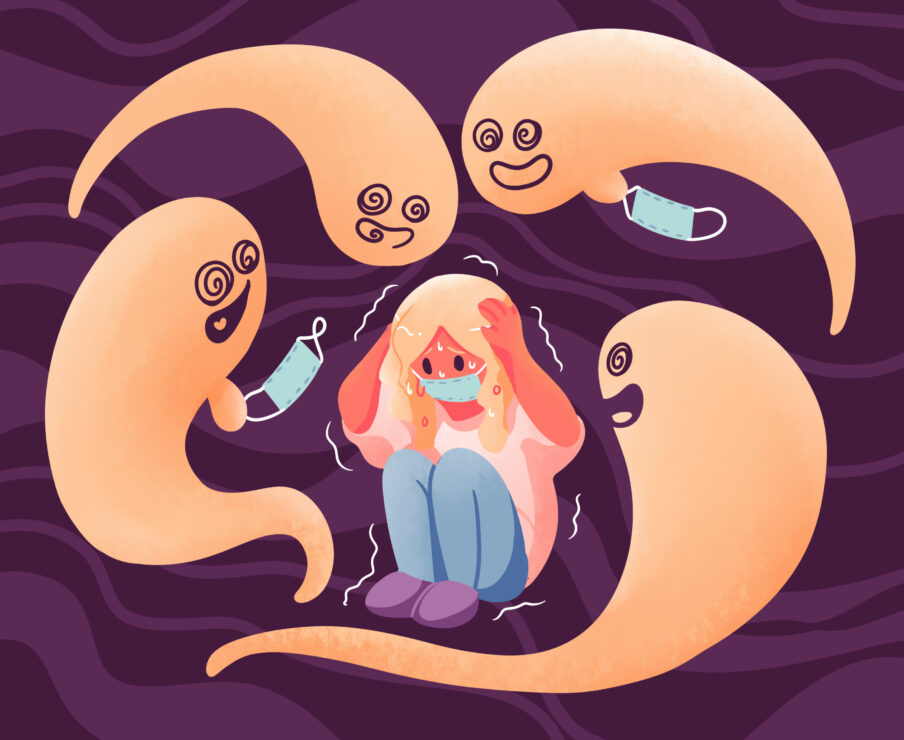Immunocompromised people are once again at a higher risk of exposure with the recent relaxation of COVID-19 regulations

Masks have been an integral part of our society since the start of the pandemic. However, as of March 11, they are no longer mandatory in indoor public settings. In my opinion, this policy shift is an outrage.
Parents of immunocompromised children have been left in the dark, and the recent exponential rise of cases in China may damage the long-fought progress that B.C. has made to bend the curve. The decision to drop the mask mandate could not have come at a more inopportune time.
Some people may support the socially sustainable approach to the pandemic that B.C. is now taking, but I do not. The B.C. government’s decision to drop the mask mandate is flawed, as it fails to factor in the detrimental effects that it has on immunocompromised individuals.
According to Health Canada data at the time of writing, only 37 per cent of children between the ages of five and 11 are fully vaccinated in Canada. This low number of vaccinated children leaves immunocompromised children even more exposed to the virus. For the parents of these children, mask mandates were the next best disease prevention method — but that has been unjustly snatched away from them. Thus, some feel they have little other option than to make their children drop out, and homeschool them for the rest of the year.
A recent study published by the American Society for Microbiology states that immunocompromised people do not get the same number of antibodies as healthy individuals. Hence — even for vaccinated immunocompromised adults and adolescents — lifting a mandatory indoor mask requirement may prove to be calamitous to their health.
In their rush to return things to normal as quickly as possible, it appears the B.C. government has not assessed the entire gamut of consequences for lifting the mask mandate. The unethical aspects of this policy shift should have been properly analyzed before going forward with these changes.
Under the new public health order, businesses, institutions, and other organizations have the right to make their own rules in regards to the mask mandate. The government can be deemed extremely hands-off and irresponsible in taking this particular mandate approach, as they are leaving it up to businesses and organizations to decide for themselves what to do.
UVic has decided to remove mandatory mask requirement indoors and, like the B.C. government, has left mask wearing to personal preference. On the other hand, UBC has decided to take the opposite stance. They are maintaining their indoor public space mask requirement for at least the remainder of the semester. In my opinion, UBC has taken a much more prudent and diligent approach — and UVic should have followed suit.
Furthermore, on top of lifting the mask mandate, the B.C. government is abolishing the vaccine passport program on April 8. Recently, the number of cases in China has risen exponentially, so both of these decisions could not have come at a worse time.
Some people may ask, what does the COVID-19 case increase in China have to do with Canada? My answer for that would be — everything! When the Omicron variant first came to Canada, it almost toppled the Canadian healthcare system. Canada could be facing a similar situation if a new variant emerges due to growing case numbers in China.
Moreover, in this hypothetical situation, there is uncertainty on the mutation of the new variant. Does it fully or partially evade the antibodies created by the vaccine? Is there a need to make a new vaccine? Are boosters effective against the new variant? These unanswered questions at the start of a new variant’s discovery keep me up at night, and I am willing to bet that it keeps others up as well. A mask mandate somewhat softens this worry, as I know I will at least still be partially protected regardless of the severity of a new variant.
My point is that if a new variant comes and runs rampant through B.C., the reinstatement of a province-wide mask mandate at that time would be too late — especially for immunocompromised individuals.
The B.C. government’s decision to make mask wearing optional is in no way shrewd, except maybe as a method of assuaging the momentary concerns of restless citizens. They should be able to gauge COVID-19 situations abroad and make a decision on removing the indoor mask mandate on the basis of that. The reason behind this notion is that if an incredibly transmissible new variant emerges, no border, state, or rule would be able to keep it out due to the world’s globalized nature. Keeping an indoor mask mandate and vaccine passport system is indicative of being prepared beforehand for an inevitable new variant.
Lifting the indoor public mask mandate is extremely unethical, inequitable, and erroneous. The B.C. government should return to their senses and reinstate a mandatory indoor mask order as soon as possible.






